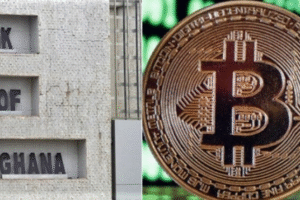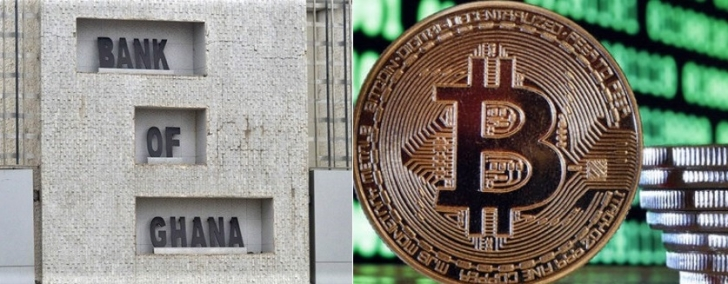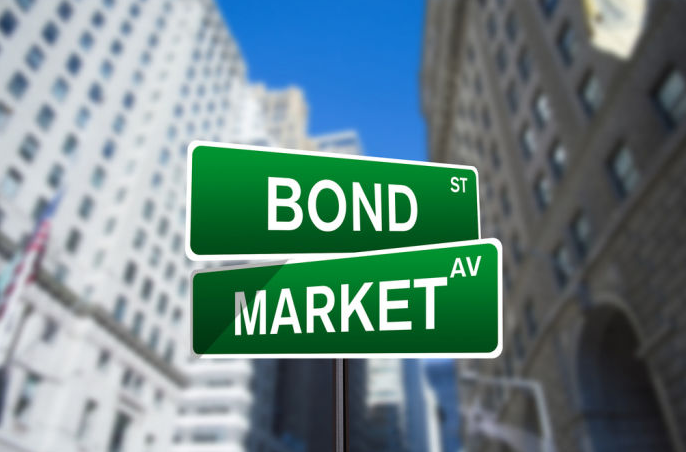The Bank of Ghana (BoG) has announced that the country’s total gold reserves reached 38.04 tonnes as of October 31, 2025, marking the highest level ever recorded in the nation’s history.
The data, released by the Central Bank on November 5, 2025, shows a remarkable 35% increase compared to the 28.1 tonnes held in October 2024, underscoring Ghana’s continued effort to strengthen its external reserves and stabilize the local currency.
Breakdown of Ghana’s Reserve Growth
According to the Bank’s official market update, Ghana’s total gold holdings stood at 30.53 tonnes in December 2024, meaning an additional 7.51 tonnes have been accumulated between January and October 2025.
A review of the month-by-month data reveals that the Bank recorded consistent growth throughout the year, with some months witnessing increases of over 4%, reflecting the success of the Central Bank’s Domestic Gold Purchase Programme.
Domestic Gold Purchase Programme: A Strategic Move
Launched in June 2021, the Domestic Gold Purchase Programme (DGPP) was designed to diversify Ghana’s international reserves and reduce dependence on the US dollar.
Under the initiative, the Bank of Ghana purchases gold directly from licensed mining companies and pays them in Ghanaian cedis, thereby supporting local value retention while minimizing exposure to volatile foreign exchange markets.
The policy has proven to be one of the Bank’s most effective tools for strengthening Ghana’s reserve position, especially during global market uncertainty and inflationary pressures.
Governor Dr. Johnson Asiama reaffirmed the Bank’s commitment to sustaining this initiative in a recent interview with Joy Business, noting that the policy has become critical to Ghana’s financial resilience.
“This move should also go a long way in helping to firmly stabilise the cedi,”
— Dr. Johnson Asiama, Governor, Bank of Ghana.
Stabilising the Cedi Through Gold Holdings
Economists say the record-high reserve levels signal growing confidence in Ghana’s macroeconomic management. Gold, as a globally recognized store of value, enhances the Central Bank’s ability to defend the Ghana cedi against speculative attacks and external shocks.
Historically, Ghana’s relatively modest reserve position made it difficult for the BoG to counter rapid currency depreciation, especially during times of global financial stress. The current build-up changes that narrative.
Market analysts believe the new data sends a strong signal to investors about Ghana’s foreign exchange stability and monetary discipline, both essential to sustaining the country’s recent inflation decline to 8% — its lowest level in four years.
Reducing Dollar Dependency
The gold purchase initiative also supports Ghana’s long-term goal of de-dollarization, a strategy that aligns with the African Union’s broader push to enhance intra-African trade using local currencies.
By holding more gold, Ghana strengthens its external buffers without over-reliance on foreign currencies such as the US dollar, which remain subject to interest rate swings and geopolitical risks.
The BoG’s approach mirrors the actions of other emerging economies — including China, Turkey, and India — that have expanded gold reserves to hedge against dollar volatility and enhance monetary independence.
Market Implications and Outlook
The continued growth in Ghana’s gold reserves is expected to:
-
Boost investor confidence in the local economy.
-
Reinforce the cedi’s stability, especially during high import seasons.
-
Enhance Ghana’s creditworthiness, given its stronger reserve backing.
-
Support lower inflation, as exchange rate stability often translates to stable prices.
Economic observers also suggest that the BoG’s gold accumulation strategy could serve as a benchmark for other African central banks, demonstrating how domestic mineral resources can be leveraged for macroeconomic stability.
With Ghana maintaining its position as one of Africa’s top gold producers, the policy ensures that a portion of the nation’s mineral wealth directly benefits its balance sheet.
Conclusion from Accra Business News
The Bank of Ghana’s gold reserve milestone reflects more than strong numbers — it signals a renewed era of financial independence and stability.
As global markets continue to face uncertainty, the BoG’s gold-backed strategy stands out as a practical and forward-looking move that could help anchor Ghana’s economy for years to come.
Source: Accra Business News
Disclaimer: Some content on Accra Business News may be aggregated, summarized, or edited from third-party sources for informational purposes. Images and media are used under fair use or royalty-free licenses. Accra Business News, an extension of Accra Street Journal is a subsidiary of SamBoad Publishing Ltd under SamBoad Holdings Ltd, registered in Ghana since 2014.
For concerns or inquiries, please visit our Privacy Policy or Contact Page.
📢 GET FREE JOBS + TIPS
Others are getting instant job updates and career tips on our WhatsApp Channel. Why miss out?
📲 Join SamBoad Jobs Channel Now

















